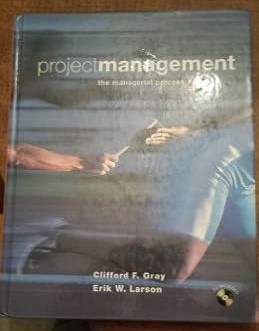Question
Canada Importers Ltd. (CIL) is a large importer of linens, china, and crystal from a number of Asian, European, and South American countries. While nearly
Canada Importers Ltd. (CIL) is a large importer of linens, china, and crystal from a number of Asian, European, and South American countries.
While nearly 55 percent of linens are imported from China, nearly 70 percent of crystals and diamond items originate in India. Most of the china comes from European and South American countries.
Several other handicrafts and household products are imported from other East European countries and Japan. Different geographical offices of CIL specialize in dif-ferent products; for example, the Toronto and Vancouver offices primarily deal with suppliers in India (specializing in different industry groups), while the Calgary office con-ducts all negotiations with South America. CIL's offices in Montreal and Halifax primarily deal with their European counterparts.
Over time, management practices, includ-ing HR activities, in various CIL offices have begun to show considerable differences, posing problems for the senior managers. Recently, the following conversation took place between Rob Whittier, the vice-president of human resources, and Henri DeLahn, the vice-president of distribution.
Rob Whittier: You may not agree with me, but if we are going to have consistency in our human resource policies, then key decisions about those policies must be central-ized in the human resource department. Otherwise, branch managers will continue to make their own decisions, focusing on different aspects. Besides, the department has the experts. If you needed financial advice, you would not ask your doctor; you would go to a banker or other financial expert. When it comes to deciding compensation 31 packages or hiring new employees, those decisions should be left to experts in salary administration or selection. To ask a branch manager or supervisor to make those deci-sions deprives our firm of all of the expertise we have in the department.
Henri DeLahn: I have never questioned your depart-ment's expertise. Sure, the people in human resources are more knowledgeable than the line managers. But if we want those managers to be responsible for the perfor-mance of their branches, then we must not deprive them of their authority to make human resource decisions. Those operating managers must be able to decide whom to hire and whom to reward with raises. If they cannot make those decisions, then their effectiveness as manag-ers will suffer.
1. If you were the president of Canada Importers Ltd. and were asked to resolve this dispute, whose argument would you agree with? Why?
2. Can you suggest a compromise that would allow line managers to make these decisions consistently
Step by Step Solution
There are 3 Steps involved in it
Step: 1

Get Instant Access to Expert-Tailored Solutions
See step-by-step solutions with expert insights and AI powered tools for academic success
Step: 2

Step: 3

Ace Your Homework with AI
Get the answers you need in no time with our AI-driven, step-by-step assistance
Get Started


